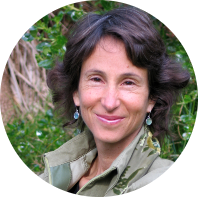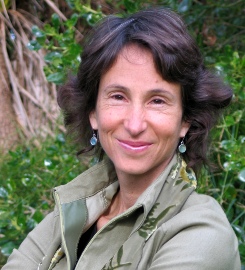The first parent I think of celebrating is the widow of the black man, Philando Castile, murdered by an American policeman when pulled over for a broken tail light a few weeks ago. His girlfriend, Diamond “Lavish” Reynolds, was in the passenger seat. She had the phenomenal presence of mind to record the grisly event live on Facebook. She remained miraculously polite to the police when asked to leave her partner’s side and kneel on the sidewalk to be handcuffed. Diamond asked , “where is my four year old?” before leaving their car, with the quiet insistence of a mother who won’t be deterred from protecting her young. Later, her daughter is seen on the Facebook video silently listening while her mother pleads for rescue from captivity in the back of the police car. This mother, in the face of incomprehensible grief and rage, remains in control for her child’s sake, knowing that if the police became enraged with her, her child’s safety would be compromised. This mother is my hero, as well as those countless others who put their children’s immediate and future welfare at the forefront of their lives.
You and I may never be able to find the fortitude to act with such bravery in immediate danger, but you and I have found bottomless love and commitment in order to help our children develop, often in challenging circumstances. For me, it was parenting alone, with no family in the country and with an antagonist father and grandparents. I had to dig deep to hold onto my identity as a strong, smart, well-intentioned woman who had just become a parent for the first time.
For some of my clients and friends, their very financial and emotional survival has been challenged when abandoned by a long-time husband and father. I have a friend going through a difficult, protracted custodial and legal separation from her husband, at the same time as losing her mother. But she keeps going to work, to court, to soccer games and dance lessons. She knows she has to connect to a trusted, caring person to let it out, to receive empathy, especially now that her mother has passed away. She reaches out to me and gets it. I have a client whose wife left him for another man. He had to move into a one room house where he housed his three children half of the week, while she stayed in the large family home and took romantic holidays with her new beau. To make it worse, she would periodically text him to say maybe it was all a mistake and perhaps they should reunite. He was pushed to his limit when also coping with a bed-wetting child who had to share the bed with his brother, so both woke in the night, and then there were sheets to clean and dry the next day. . . This client had the wisdom to know that he needed outside support and contacted me. We had many sessions where he would let himself cry, then rage, then return to the fundamental love he has for his children, and his dedication to provide them with a loving, secure home. All these parents keep going for their children’s sake.
What can you do when circumstances make it hard to keep going?
- Seek support. We parent in community and connection with other adults, be they family, friends, teachers, or a spiritual community. As neuroscientist and psychotherapist Dan Siegel demonstrates in his research and writing, we are because we are connected to others: our brains are wired to develop in connection with others, and development does not end in adolescence. Our brains continue to develop and grow and adapt our entire lives. Support can come from many sources: friends, family, a counsellor or therapist, spiritual practice and community, and nature.
- Friends can be a wonderful source of support, but they have their own burdens and time constraints, they might also feel loyal to someone who’s hurt you. Choose them carefully and monitor their true availability so that you don’t overburden them.
- Family are often the first we go to for support if we’d experienced a loving home when growing up. Many of my clients feel ambivalent about going to family in times of need, for as adults we know that our parents are ageing and less energetic; our siblings have their own challenges. There are no families who don’t have an agenda for each other.
- Counselling. When normal sources of support seem thin on the ground, you can try seeking help from a therapist. If you’re not sure who to go to, if brave, you could ask your friends. Many of them have probably seen a counsellor/therapist/psychologist (same thing!) but don’t advertise it. They’re the best sources of recommendations. Shop around online, many therapists have information and testimonials you can read. Ask your family doctor.
- Exercise, play and music. Keep your body moving, as it is the sacred vessel of our love and energy. If you don’t like the gym, dance. Zumba and other dance exercise classes will shift your attitude within minutes. The vibration of upbeat music is healing and transforming. Put music on and dance around the house with the kids. They’ll love seeing you move and play with them.
- Mindfulness. Download free mindfulness apps. My clients have shifted deep depression and thought patterns by listening for only 10 minutes a day to a good mindfulness or meditation app. Shop around online.
- Nature. Let it heal you. It is our source of life energy; it doesn’t judge us; it’s where we can “be” and not “do” (unless you’re gardening, of course, but that’s healing too!). The beach, a bush walk, or even stepping outside and marvelling at how a raindrop dangles from a leaf. Reconnect with our life force.
When we look in on our children asleep and see the innocence on their faces, all the love and nurturing we need surges from our hearts and there is nothing more meaningful than protecting and loving them. Tap into your children’s essence of love and innocence, the basis of the life force that courses through all of us and brought them here, and let it seep into your core so that it nourishes you, gives you hope, and reason to share that love with yourself and with those you care about.
Article posted 26 August 2022

Marta Fisch
Marta is a counsellor with a private practice on Waiheke Island and in Auckland city.


